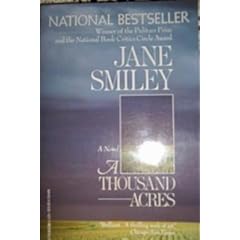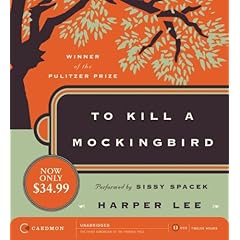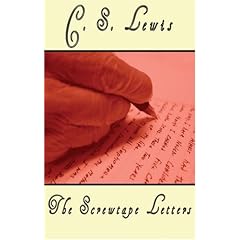
After reading
Moo and part of
Good Faith, I find Jane Smiley's writing to be so distinct. The only way I can explain it is that her narrative voice comes across as a friend telling me the story, yet with a subtle sarcasm underneath, as if she doesn't believe what she's telling me. It's actually really cool! I don't know anyone else that writes like that, except maybe Charles Dickens, a little bit. Also, Smiley tends to paint characters in a flawed yet likable way, which I think is a difficult thing to do. This makes her characters seem real.
Spoiler Alert! A Thousand Acres is very depressing. What do I mean by that? Well, to steal a line from Phoebe of Friends: "It should have been called 'It's a Sucky Sucky Life and just when you think it can't suck anymore, it does!'" Yep, from the opening line on, things just keep getting worse. I am really glad the main character survives--in the literal sense. People kept dying and being blinded and having to get jobs at Perkins... you just never knew what disaster was going to strike next. In a sense, this novel was all about possession. Of land, but also of another person's space. It was interesting how many of the themes overlapped. (This, by the way, is the key to writing a Pulitzer-prize winner!) Discord in marriage, horrible parenting, incestual rape, farming. It's all one and the same.
Even though it was REALLY DEPRESSING, I enjoyed this book. Because of Smiley's writing style itself (as aforementioned), but also because I finished reading the novel with a sense that the present is all about the past. Instead of trying to cover things up and go with the flow, confronting one's past is the way to move on. It was interesting to me that I felt good after reading this. It is one of those books that you keep thinking about days and weeks after reading. (It helps that
my friend Bekah read it too, and I get to discuss it with her in a few days!) In some ways, I feel like everything I read in the book was a backwards lesson. In other words, DON'T handle things how these people did. Those are some of the best life lessons.


















